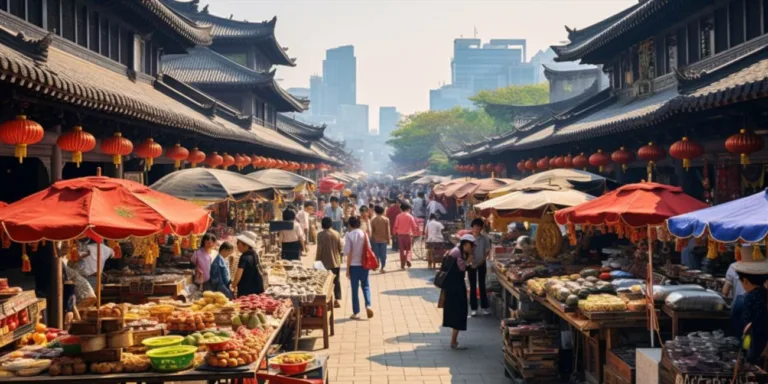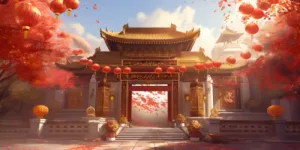Xi’an, a city steeped in history, culture, and charm, is a gem in the heart of China. Known for its ancient roots, the city is a living testament to the country’s rich heritage. In this article, we will delve deep into the enchanting world of Xi’an, exploring its historical significance, cultural wonders, and much more.
The historical tapestry of xi’an
Xi’an, formerly known as Chang’an, served as the capital of China for over a thousand years, making it one of the most historically significant cities in the world. Its history dates back to the 11th century BC when it was established as a center of power during the Zhou dynasty. Subsequently, it became the capital of multiple Chinese dynasties, including the Qin, Han, and Tang.
One of Xi’an’s most iconic historical landmarks is the Terracotta Army, a UNESCO World Heritage site. Discovered in 1974, this remarkable archaeological find consists of thousands of life-sized terracotta soldiers, horses, and chariots, created to accompany China’s first emperor, Qin Shi Huang, in the afterlife.
Historical treasures beyond the terracotta army
While the Terracotta Army is a major draw, Xi’an offers a plethora of other historical sites. The city’s ancient city wall, which dates back to the Ming dynasty, is one of the best-preserved city walls in China. Walking or cycling along its ramparts offers a unique perspective on the city’s layout and history.
The Big Wild Goose Pagoda, built during the Tang dynasty, stands as a symbol of ancient Buddhism’s influence in Xi’an. The Shaanxi History Museum showcases a vast collection of artifacts that provide insights into the region’s past, and the Small Wild Goose Pagoda and its tranquil surroundings offer a peaceful retreat from the city’s hustle and bustle.
Cultural enchantment
Xi’an’s cultural tapestry is as rich as its history. The city is known for its delectable cuisine, including iconic dishes like Xi’an’s famous noodles, which you can savor at bustling food markets and local eateries. The Muslim Quarter is a vibrant and diverse hub of flavors, blending Chinese and Islamic culinary traditions.
The city’s music and dance traditions, such as the Tang Dynasty Music and Dance Show, are vibrant and captivating, taking visitors on a journey through time. Art enthusiasts will appreciate the stunning Tang Dynasty murals at the Tombs of Empress Wu Zetian.
Modern marvels and future aspirations
Xi’an isn’t just about history and culture; it’s also a thriving modern metropolis. With a robust economy and a burgeoning tech industry, the city is making strides toward a promising future. Xi’an Jiaotong University and Northwestern Polytechnical University are renowned centers of learning, attracting scholars and students from around the world.
One of the most significant recent developments is the Belt and Road Initiative, with Xi’an at its core. This ambitious project aims to strengthen global trade and connectivity by reviving the ancient Silk Road. Xi’an’s strategic location has turned it into a crucial hub for this initiative, attracting international attention and investment.
What is the best time to visit xi’an?
The best time to visit Xi’an is during the spring and autumn months, from March to May and September to November. The weather is pleasant, and you can explore the city comfortably.
How can i get to xi’an?
You can reach Xi’an by air, train, or bus. The city has a well-connected international airport, high-speed train stations, and long-distance bus terminals, making it easily accessible from various parts of China and the world.
What are some must-visit historical sites in xi’an?
Apart from the Terracotta Army, you should visit the ancient city wall, the Big Wild Goose Pagoda, the Small Wild Goose Pagoda, and the Shaanxi History Museum to experience the city’s rich history.
Is xi’an a safe city for tourists?
Yes, Xi’an is generally considered a safe city for tourists. However, as with any travel destination, it’s essential to take standard precautions, such as safeguarding your belongings and being aware of your surroundings.
In conclusion, Xi’an is a city that effortlessly marries its glorious past with its promising future. Whether you are a history enthusiast, a culinary explorer, or a traveler seeking cultural experiences, Xi’an has something to offer. With its unique blend of ancient treasures and modern aspirations, this city is a must-visit destination in China.
Zobacz także:






